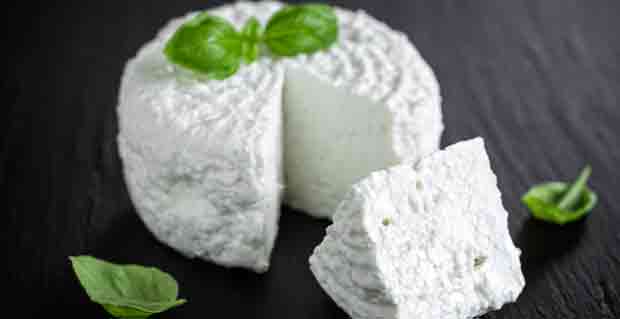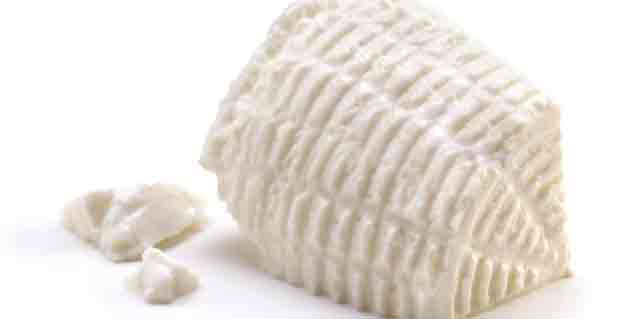Cheese is a true marvel of the culinary world. It comes in many forms and it also presents all kinds of flavor profiles.
With so many variants of cheese to choose from, it can be difficult to find a favorite. Those who prefer traditional Italian food may lean toward Parmesan cheese, while those who like creamy textures may have Brie as their favorite type of cheese.
As for those with a sweet tooth, Ricotta cheese may be what they love most. The thing about Ricotta cheese though is that many people are unaware of how to store it.
Can you freeze Ricotta cheese? Can you just keep it in a container in your refrigerator?
Those are questions that have been asked about this specific kind of cheese. If you want to learn more about how to correctly store Ricotta cheese, please continue reading.
What Makes Ricotta Cheese Different?

Before we tackle the subject of storing Ricotta cheese, it would be helpful to learn more about this particular foodstuff first.
What separates Ricotta cheese from many of the other cheese variants on the market is its flavor. It has a savory quality, but it’s also sweet enough to be used in various desserts. On top of that, the smooth and spreadable texture of Ricotta only works to make it a more versatile ingredient.
If you want to add some sweetness to your lasagna, Ricotta will be able to help. Ricotta is also useful if you are planning to create a cheesecake.
It’s easy to understand why so many people are in love with Ricotta cheese, but can they keep large amounts of it at home without worrying about spoilage?
The Things You Need to do Before Freezing Ricotta Cheese
To answer the question in the title of this article, yes, Ricotta cheese can indeed be frozen, but the catch is that it can’t just be thrown into the freezer if it’s a leftover. You have to put extra care into preparing Ricotta cheese before freezing it if you want to ensure that it will remain a quality product once the time comes to use it again.
It would be best if you separated large portions of Ricotta cheese into smaller servings. Eight ounces of Ricotta cheese in a container would be ideal. Speaking of containers, you will want to use airtight items or vacuum-sealed bags for freezing Ricotta cheese.
What Changes Can I Expect to See in Frozen Ricotta Cheese?
There’s no need to worry about the flavor changing if you freeze Ricotta cheese. That same savory and sweet flavor profile will remain intact.
The same cannot be said for its texture though. Frozen Ricotta will no longer be as creamy and it may even start to resemble Feta cheese.
Would It be Advisable to Freeze Ricotta Cheese?
Whether or not freezing Ricotta cheese is the right move for you will depend on what you intend to do with once you decide to take it out of storage.
Because of the change in texture, previously frozen Ricotta cheese will not work as well if you are planning to use it as a spread or as a creamy element unless you combine it with a different type of cheese.
You can still use Ricotta in many savory applications though. It may even work better for salads if it was frozen recently.
How Should I Freeze Ricotta Cheese?

If you’ve decided that you do want to freeze Ricotta cheese, then there’s a few ways you can go about doing that.
The packaging typically used for Ricotta cheese is good for freezing. As long as you haven’t opened the packaging yet, you can take the Ricotta out of your grocery bag and place it directly inside the freezer.
You will need to do a little more if you’re storing leftover Ricotta however.
As mentioned earlier, you will need some kind of airtight container for the cheese. With the container secured, you can proceed to preparing the Ricotta.
You first have to stir the Ricotta in a bowl and then press down on it using a paper towel to get rid of any excess moisture. Portion out the Ricotta next and then wrap the pieces up in either aluminum foil or plastic wrap.
Place the wrapped Ricotta in the airtight container and then put it inside the freezer. Ricotta will be fine frozen for about a month, but anything longer than that and you risk losing its flavor.
How to Thaw Frozen Ricotta Cheese?
The key to thawing frozen Ricotta is doing it inside the refrigerator. Get a bowl, place the Ricotta in there and begin stirring it around. It’s impossible to bring back the old texture of Ricotta cheese but you should still stir it until it becomes looser.
Reminders for Using Your Unfrozen Ricotta Cheese

Now that it’s been thawed, the Ricotta cheese is ready to be used again. You need to use it right away as well. Unfrozen Ricotta will only remain flavorful for up to two days after it is thawed. That’s why you should portion it out before freezing.
What Can I do With My Unfrozen Ricotta?
Stick to recipes where the texture of Ricotta cheese will not be emphasized. Unfrozen Ricotta can still add interesting flavors to salads and lasagnas. You can also still use it as a filling for stuffed pasta. If you still want to use it in a dessert, you can whip it together with some cream cheese and use that as a base for a cheesecake or perhaps even a pie.
Final Thought
Now that you know how to properly freeze and even thaw Ricotta cheese, you should feel free to have as much of this delicious dairy product in your home as you’d like.
Here are just a few more things to keep in mind when you are freezing and thawing Ricotta cheese:
- Figure out right away if you have excess Ricotta and store any you have in its original packaging
- When using an airtight container, mark it with the date of when you started to freeze the Ricotta
- Thawing Ricotta on a countertop is a no-no unless you want bacteria in your food
Remember those tips and you should encounter no issues when freezing Ricotta cheese.



